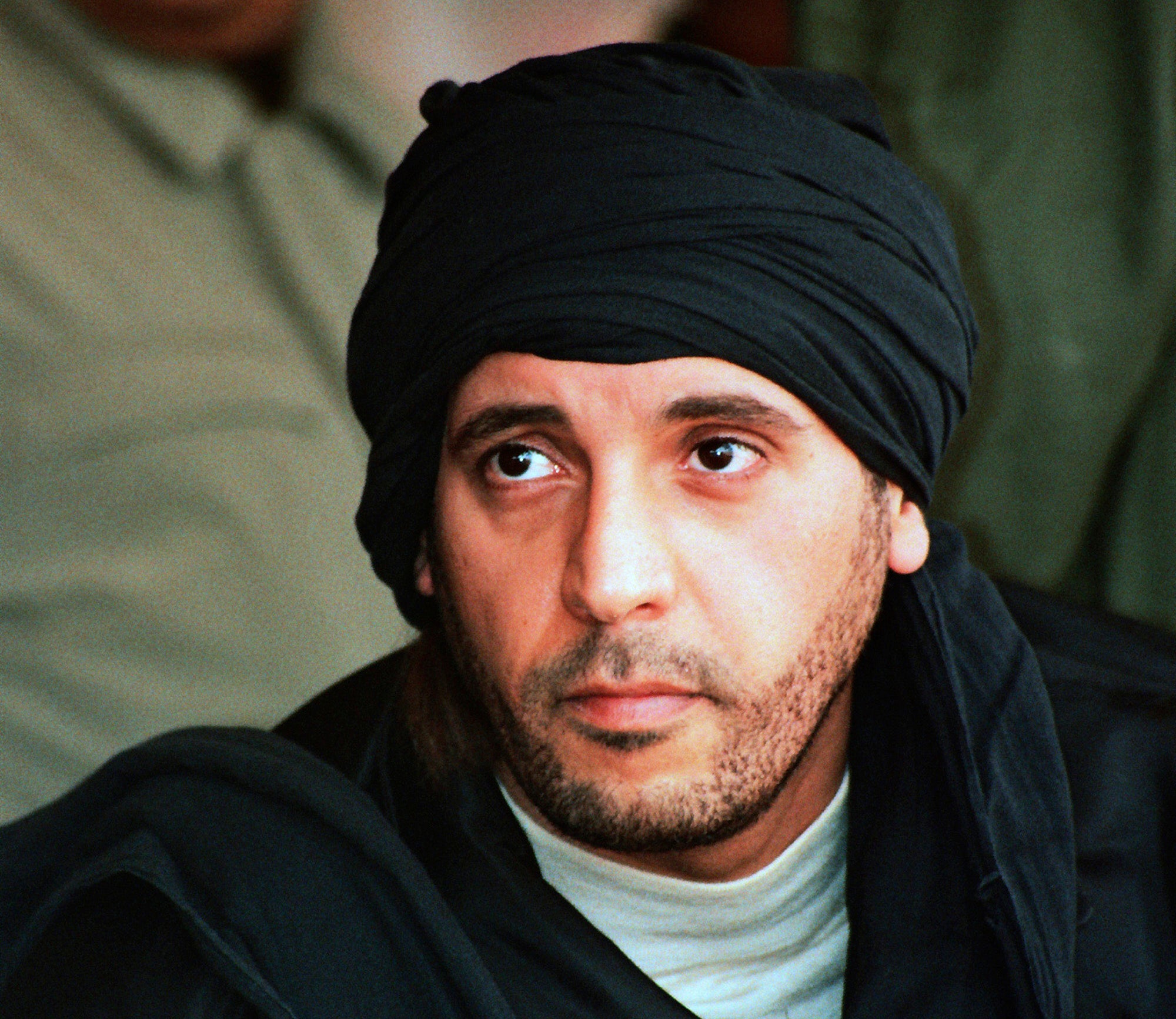Libya asks Lebanon to release Gadhafi's detained son due to deteriorating health, officials say
Libya’s judicial authorities have formally asked Lebanon’s prosecutor general to release one of Moammar Gadhafi's sons, held without charges in Lebanon since 2015 because of his deteriorating health

Your support helps us to tell the story
From reproductive rights to climate change to Big Tech, The Independent is on the ground when the story is developing. Whether it's investigating the financials of Elon Musk's pro-Trump PAC or producing our latest documentary, 'The A Word', which shines a light on the American women fighting for reproductive rights, we know how important it is to parse out the facts from the messaging.
At such a critical moment in US history, we need reporters on the ground. Your donation allows us to keep sending journalists to speak to both sides of the story.
The Independent is trusted by Americans across the entire political spectrum. And unlike many other quality news outlets, we choose not to lock Americans out of our reporting and analysis with paywalls. We believe quality journalism should be available to everyone, paid for by those who can afford it.
Your support makes all the difference.Libya’s judicial authorities have formally asked Lebanon to release one of the late dictator Moammar Gadhafi’s sons, held without charges in Lebanon since 2015 because of his deteriorating health, officials said Monday.
The health of Hannibal Gadhafi has been deteriorating since he went on hunger strike on June 3, to protest his detention without trial. He was taken to hospital at least twice since then and has been only drinking small amounts of water.
According to two Lebanese judicial officials, Libya’s prosecutor general Al-Sediq al-Sour, sent a request earlier this month to his Lebanese counterpart, Ghassan Oueidat, regarding Hannibal Gadhafi. The officials spoke to The Associated Press on condition of anonymity because they were not authorized to talk to the media.
The note stated that Lebanon’s cooperation in this matter could help reveal the truth regarding the fate of a prominent Lebanese Shiite cleric, Moussa al-Sadr, who went missing in Libya in 1978.
It questioned why Gadhafi was being held and asked that he be either handed over to Libya or be allowed to return to Syria, where he had been living in exile with his Lebanese wife, Aline Skaf, and children until he was abducted and brought to Lebanon eight years ago.
The Lebanese prosecutor then referred the case to Zaher Hamadeh, the investigative judge in the missing cleric's case, who is studying the Libyan request and would respond in time.
Hannibal Gadhafi has been detained in Lebanon since 2015 after he was abducted by Lebanese militants demanding information on the whereabouts of the cleric. Lebanese police later announced it had picked up Gadhafi from the city of Baalbek in northeastern Lebanon, where he was being held. He has since been held in a Beirut jail.
The disappearance of al-Sadr in 1978 has been a long-standing sore point in Lebanon. The cleric’s family believes he may still be alive in a Libyan prison, though most Lebanese presume al-Sadr is dead. He would be 94 years old.
He was the founder of the Amal group, Arabic for “hope,” and an acronym for the militia’s Arabic name, the Lebanese Resistance Brigades. The group later fought in Lebanon’s 1975-90 civil war. Lebanon’s powerful Parliament Speaker Nabih Berri heads the group.
Most of al-Sadr’s followers are convinced that Moammar Gadhafi ordered al-Sadr killed in a dispute over Libyan payments to Lebanese militias.
Libya has maintained that the cleric and his two traveling companions left Tripoli in 1978 on a flight to Rome and suggested he was a victim of a power struggle among Shiites.
Moammar Gadhafi was killed by opposition fighters during Libya's 2011 uprising turned civil war, ending his four-decade rule of the North African country.
Hannibal Gadhafi, who was born two years before al-Sadr disappeared, fled to Algeria after his father was toppled and Tripoli fell to opposition fighters, along with his mother and several other relatives. He later made it to Syria where he was given political asylum and stayed there until he was abducted.
Syrian authorities at the time blasted Hannibal Gadhafi’s seizure “by an armed gang” and have been demanding he be returned to Syria.